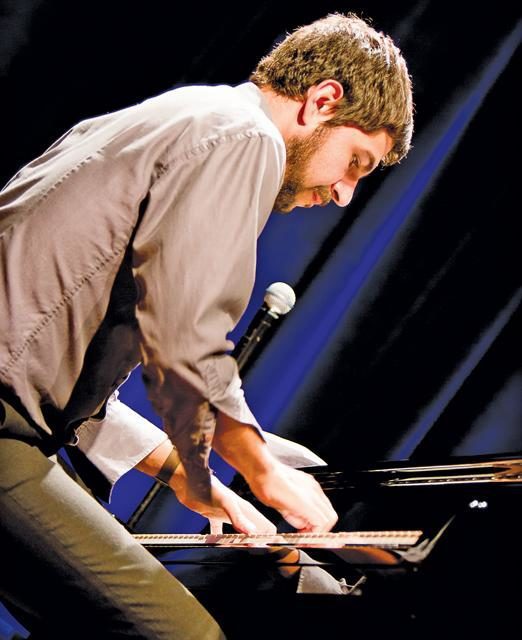When Brazilian pianist Andre Mehmari returns to the Kerrytown Concert House on January 19, it will be his fifth visit there since 2013, but the first one in which he will not be playing solo. Accompanied by two sidemen, bassist Neymar Dias and drummer and longtime collaborator Sergio Reze, Mehmari will feature music from his trio’s new recording, Na Esquina Do Clube Com O Sol Na Cabeca (“Sunbakeheaded at Clube da Esquina”).
Now in his early forties, Mehmari has long been a force in Brazilian music. A child prodigy on classical piano and organ, he was winning prestigious national contests and awards in classical, jazz, and pop music by his teens and early twenties. He has worked as a composer, arranger, and recording artist with orchestras, chamber ensembles, and jazz groups and has toured internationally. His live performances, original compositions, and covers blur the boundaries between classical, jazz, and Brazilian and international pop music–and even compel us to question the distinctions between composing, improvising, and arranging. Think Keith Jarrett with Brazilian overtones, and you have a sense of Mehmari’s sound.
Mehmari’s live recording of Variations on a Caprice by Paganini amply demonstrates his technical mastery of the keyboard. His composed/improvised variations have all the bravura and atmospheric tenderness of the Brahms original while also inventively and even humorously introducing ragtime and jazz variants that Brahms never imagined. His reworking of the Beatles’ “Penny Lane” blends jazz and classical ideas with the song’s pop-rock sensibility. It is raucously different from the original, yet vividly recreates Penny Lane in our ears and in our eyes. Similarly, his version of Astor Piazzolla’s Oblivion pays homage to his fellow South American composer but also infuses some Brazilian flavors into the Argentinian and classical mix that Piazzolla employed.
Mehmari needs no help filling a room sonically, but playing with other musicians allows him to more fully explore his latest passion, recreating the music of Clube da Esquina, the 1970s Brazilian musicians’ collective that melded rock, pop, and jazz with bossa nova, Brazilian country music, and classical elements. Here he shows how he’s not only able to stomp and sing with his piano but also to listen, as he gracefully opens spaces into which his bassist can step, or percussively punctuates the rhythmic phrases of his drummer. It is only fitting that Mehmari, who says he has long admired Clube da Esquina’s “utmost representation of humanism,” would team up with other musicians to reimagine the work of these artists, who created so collaboratively.


